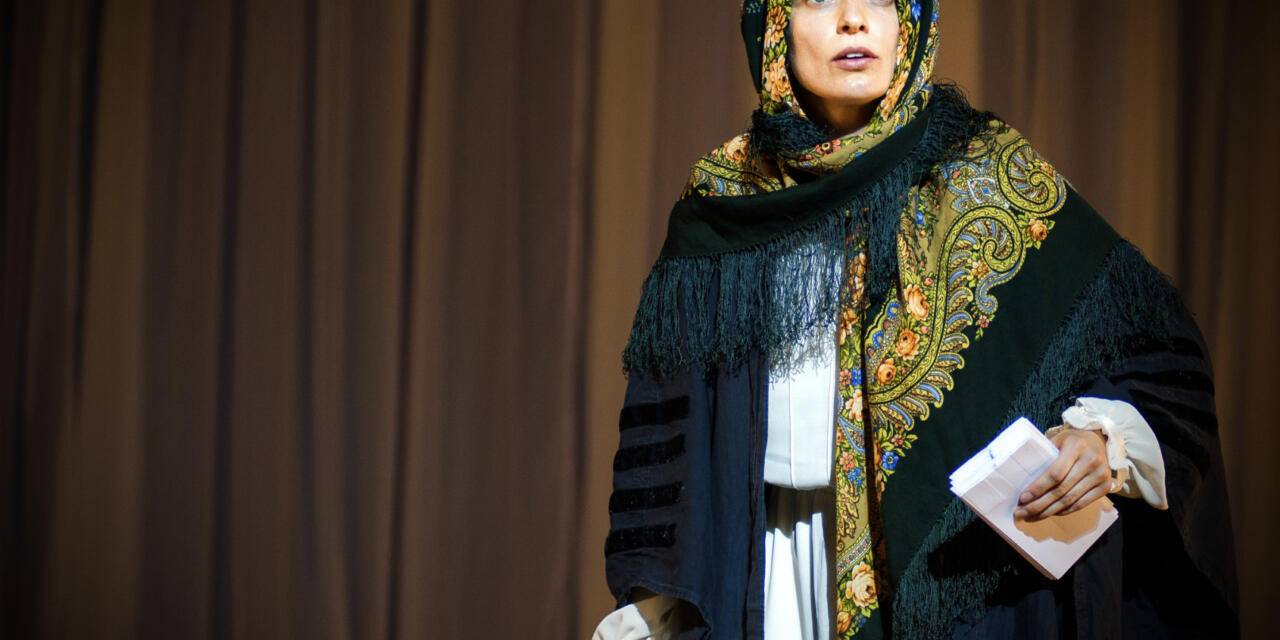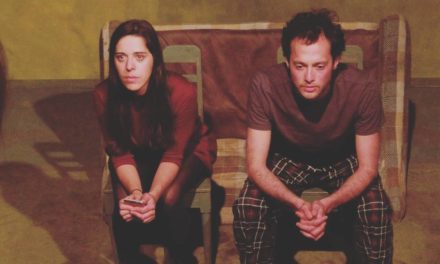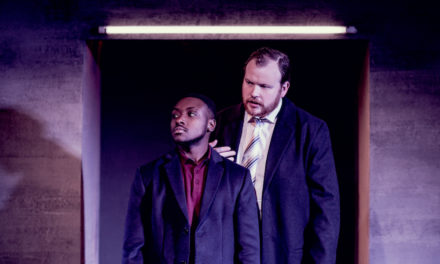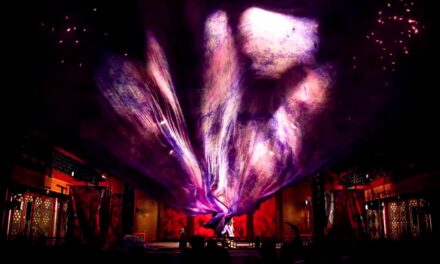Agnieszka Kazimierska has always been an artist. From the age of six, she told as much to her grandmother; this knowing only grew with time. “[An] upsurge of artistic desire was in my teens,” Kazimierska tells me at the beginning of our chat. “There is this moment of understanding: I perceive that there are worlds of existence about which people don’t even talk, and I feel them and I acknowledge them very clearly, and there is no space where we relate to that.”
Kazimierska, in art as in life, has worked to inhabit these worlds of existence, to invite others into a space we often find uncomfortable. The whole of this psychic approach can be seen in her solo show, Katie’s Tales, an internationally-honored performance making its New York debut at the United Solo Festival in November. Following a woman in a garden awaiting her beloved’s return, it is a show that explores “this situation of waiting and, at the same time, needing to be strong, maintaining life of what is left, in whatever state it’s left here, beautiful or destroyed.” Kazimierska’s Katie is a woman remembering her own history, and, in turn, experiencing the grand History of those who came before.
It is a journey that mimics the playwright’s. Finding visualization through the artistry of painting and contemporary movement “led me to an interest in traditional singing, starting to look for roots and what it might mean and how to actually enter in relation with roots, with the past,” says Kazimierska. “Not only the past of the last century, but you can track back, and back, and back, and maybe touch a root of who you are, not only as individual but as peoples.” Simply having conscious contact with her cultural roots in Poland, Ukraine, and Bulgaria prompted an intense depth of human connection and inquiry into the self. She and several friends went forth on a three-month hitchhiking trip across Europe, filled with “the desire to meet and to relate to people and to life. Knowing and dwelling in a place where the mystery is welcome and life is not taken for granted.”
The power of this sentiment is one that Kazimierska knows well. Her voice breaks as she speaks of her own peoples, and of the legacy of strength and strife that they embody. “Places where we are born or grew, whatever’s happening there, we are the barometer of it,” she says. She talks of wars; she talks of loved ones; she talks of not even a century passing between “never again” and “it’s happening again.” Katie resides both within and without Kazimierska’s homeland. There are references to Poland and the second World War, of course, and an inevitable association with Eastern Europe as the playwright performs it, but the garden itself exists somewhat out of time. It is the representation of human spirit throughout struggle, becoming “a metaphor of human psyche, for all those different aspects of all of us living a little bit in the future, a little bit in the past, a little bit with the current desire.” Katie herself gives body and voice to the tree-witnessed memories of the past, and brings her audience along into the integration.
It is there that Katie’s Tales finds its universality. “Fear of loss, separation, the hurt that comes from atrocities of war, but also how men, especially, can hurt women in those contexts, they don’t have any limits and become unhuman. The desire of just living this full, full beauty of love. The memories of first flirts with the lover. The humanity…” Kazimierska smiles. “I think all those things are pretty universal.” She’s received strong responses across the world in support of that statement. Audiences in Argentina, faced with the added barrier of subtitles, found themselves in relation to hope within horrors. A Mexican-American attendee in the Southwest professed that she saw her own grandmother in the piece. And a Polish professor, upon viewing an early iteration, proclaimed, “It’s so Polish!” Clearly, Katie’s Tales has found resonance amongst a variety of cultures, and Kazimierska is thrilled to bring it to New York.
“I’m just very glad, and desiring to string some common human cords in those who will come,” she tells me near the end of our talk. “[I want to] invite people to a space and time that functions in a different rhythm than the city life.” In turn, the experience can bring us to Mindell’s Dreaming Body, Grotowski’s promise of human potential, and the sadhus that surround us, inspirations of Kazimierska come to living color.
Katie’s Tales offers an old song and a new dawn, told in English and Polish, sung, spoken, and physicalized. An ephemeral, Chekhovian cherry orchard finds its way in a new voice.
“[Trees] sustain us, they are part, they are lived…they are still here to keep being the witness. I think trees are just having so many fascinating stories that we just don’t know how to read,” the playwright says in wrap-up. Her eyes twinkle. “Or maybe some of us know how to read.”
Katie’s Tales plays at the United Solo Festival on November 11, 2023. For more information and for tickets, click here.
This post was written by the author in their personal capacity.The opinions expressed in this article are the author’s own and do not reflect the view of The Theatre Times, their staff or collaborators.
This post was written by Rhiannon Ling.
The views expressed here belong to the author and do not necessarily reflect our views and opinions.


















